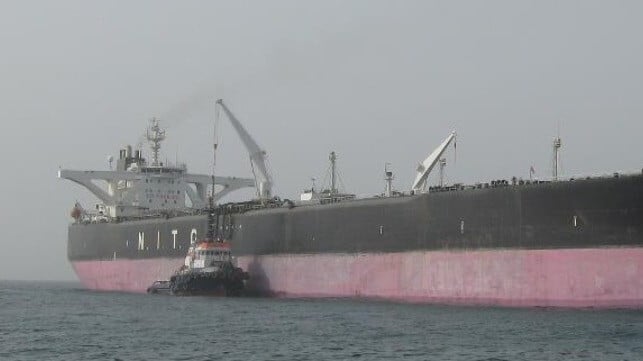Iranian Oil Exports to China are Back on the Rise

After a period from March to May in which Iranian exports of crude oil to China fell substantially, in the three months from June to August sales have resumed their upward trend.
According to Kpler, Chinese ports unloaded 1.68 million barrels per day in August, an increase of more than 20% over offloading in July. The August figure was well above the average of 1.45 million bpd for the first eight months of 2025. While monthly figures can be erratic, Iranian sales to China appear to be on an upward trend. However, this may not be translating into increased revenues for Iran, as market prices for crude have fallen with supply still expanding faster than demand, despite Russia’s export difficulties. Iran is having to offer discounts of about $5 per barrel in order to tempt the Chinese purchasers to ignore the potential risks of US sanctions.
 Iranian crude exports to China from Kpler and Vortexa estimates (CJRC)
Iranian crude exports to China from Kpler and Vortexa estimates (CJRC)
The increase in crude shipments comes notwithstanding a substantial increase in sanctions listings, both of ships, shipping agents and offload crude terminals in China, from the US authorities but also from the EU and UK. The brutal fact however is that sanctions on the Iran to China shipping operation are largely ineffective when all elements of the supply chain are either Iranian-owned, or owned by Chinese companies who can happily carry on business because they operate within China’s internal market, or enjoy the blessing of the Chinese government. Sanctions discourage the involvement of legitimate companies in the trade, but there are sufficient numbers of unscrupulous operators attracted by the heightened profit margins to keep the operation in train. Fictitious companies and registrations may be detected and such entities sanctioned, but by that point the beneficial owners will have long since shuttered whatever has been sanctioned, and got out the paint pot to put a new name on a successor company.
Indeed, it could fairly be said that many of the government sanctions programs are political window-dressing, with no realistic prospect of being effective - save in deterring legitimate operators from taking part in the trade, to the benefit of cowboy operators instead. Winning the prize for ineffectiveness is the UK program, which despite listing hundreds of entities has failed to impose any penalty this year (or since records began) for breach of Iranian sanctions, though it has levied fines of $1 million for breaches of Russian-related sanctions.
The news is not entirely bleak, however. Attacking the supply chain directly is likely to remain ineffective, at least until consideration is given to resuming seizures of ships and cargos at sea, as last occurred in 2023. But linking breaches of sanctions to imposition of tariffs could encourage governments to go along with the sanctions - except that leaders of most of the countries concerned stood alongside each other in solidarity at the recent military parade in Beijing to celebrate the end of the Second World War in Asia.
The opinions expressed herein are the author's and not necessarily those of The Maritime Executive.
